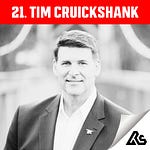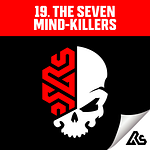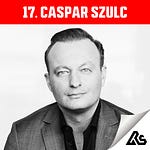This is the second half of my conversation with Jon Macaskill and Will Schneider of the Men Talking Mindfulness podcast. For roughly an hour, we discussed our experience taking psilocybin in a therapeutic group setting with Beckley Retreats in 2021. Beckley’s programs include a four-week virtual preparation phase, a five-day on-site legal retreat outside the United States, and a six-week virtual integration phase. I found their work to be extremely comprehensive and committed to best practices.
To date, I’ve never spoken about psychedelics publicly in any capacity. But I’ve had numerous people ask my opinion on them. Since Jon, Will, and I went on this trip together, I felt that here was the appropriate opportunity to provide some commentary on the subject. However, please note that our discussion purely represents a narrative of what we went through and our personal opinions. It is not prescriptive in any way. None of us are medical professionals.
I’m also going to combine this podcast episode with my monthly blog post and offer some reflections on the Venn diagram consisting of drugs and mind fitness. These two topics can contain overlapping real estate, and the question I’ve always tried to answer in my case is—how large should that intersection be? Can drugs be part of my mental health journey or regimen? And if so, which ones?
First, it helps to clarify what most of us mean by “drugs.” I’ve always been given two basic definitions:
A medicine or other substance which has a physiological effect when ingested or otherwise introduced into the body.
or
A substance taken for its narcotic or stimulant effects, typically illegally.
Put another way, there are “good” and “bad” ones. The former are synonymous with medicine—safe, salubrious, and therefore, legal. They are prescribed by doctors or are available over the counter at your local (aptly named) drugstore. The latter are dangerous, potentially deadly, and justifiably against the law. They are sold by criminals lurking in dark alleys.
For the longest time, this is precisely what I believed. I grew up in the 1980s when the war on drugs was prominently broadcasted across the airwaves with famous slogans like “Just say no.” When it came to any “bad” drug, from cannabis to crack, I was repeatedly told to avoid them at all costs. These substances are simply hazardous to your health and of no benefit. And in the case of “mind-altering” substances like psychedelics, they are at the worst end of the spectrum. Not only are they addictive, but they can make you go crazy, jump off a building, or turn you into a vegetable after just one dose. They seemed terrifying to me.
I was also led to believe that what caused mental health conditions like anxiety and depression was an imbalance of chemicals such as serotonin in the brain. If you suffer in this way, it’s not your fault. The gray matter in your head is simply defective. Luckily, pharmaceutical companies developed “good” drugs like antidepressants that correct this shortcoming. It’s a temporary fix, but it works. You will feel better if you continue to take their proprietary pills for the rest of your life.
But as I got older, I became critical of this conventional collective narrative for numerous reasons. I learned that most of what I had been told about psychedelics wasn’t true. Books like Stealing Fire by Steven Kotler and Jamie Wheal and How To Change Your Mind by Michael Pollan opened my eyes to the history of these compounds. Not only were many of them found in nature, but various cultures had also used them for hundreds, if not thousands, of years as medicine. And in the mid-twentieth century, scientists in the United States actively studied their potential therapeutic effects. I also started hearing about veterans successfully treating PTSD and other mental health conditions with only a few doses. Sometimes with just one.
Lastly, I found out there’s basically no evidence that a lack of serotonin causes depression.1 Nor do SSRIs seem to exhibit their purported chemical effect.2 Johann Hari details the history of mental health and prescription meds brilliantly in his book Lost Connections, which I highly recommend if you want to learn more.
If I were to summarize my findings, essentially, I’d been lied to about certain drugs for my entire life. Some of the bad ones weren’t bad, and many of the good ones weren’t very good. Of course, that’s not true with all of them. There are legitimate life-saving pharmaceuticals out there. I’m not telling anyone not to take medication their doctor prescribes if it works for them. And I think we can all agree that crystal meth probably isn’t ever beneficial… But I had to take a second look at the fundamental points of distinction between those two connotations I laid out before for the term “drugs.”
Upon close inspection, I could only find one—legal status. It also seemed that what got something on the nice or naughty list wasn’t always a matter of health benefits or safety. After all, the best scenario for any company that makes a consumable is to have as many people ingesting their product daily forever. I don’t see why Big Pharma would be any different. It’s mostly about money.
So, in my mid-forties, when faced with mental health problems that could potentially be treated with drugs, I was forced to stare down this reality. I had seen a psychiatrist who wanted to prescribe me SSRIs within thirty minutes of our first meeting. But I just couldn’t accept this solution based on everything I’ve discussed thus far. I also had opportunities to try psychedelics in various settings. And while the horror stories I’d been told for most of my life still loomed large in my mind, I’d spoken to enough people I trusted who seemed positively transformed by their use.
However, I was still hesitant because I saw another issue with any drug used to treat mental health—disempowerment. By accepting chemical assistance, I was essentially acquiescing to the idea that my brain was “broken” in some fashion. That I was incapable of training my mind out of these problems. I never liked that idea. But I also realized that based on everything I’d learned about psychedelics, they might serve as more of a “teacher” than a drug. Maybe they could give me a new perspective I was having difficulty seeing. So I gave them a shot. As you’ll hear in the podcast, I believe the experience was beneficial, although by no means a cakewalk.
Ultimately, I do think these substances can help people. That said, they are extremely powerful and definitely not for everyone. Regardless of its moniker, any medicine or drug should be treated seriously. And I’m certainly not here to tell anyone what they should or shouldn’t ingest, imbibe, or inject. To each their own.
On a larger scale, I’ve come to believe that anything you put in your body can technically be a drug. It doesn’t matter if it’s LSD, prescription pills, or things we don’t even classify this way, like alcohol and food. You can go to a liquor store and purchase enough booze to put yourself in a coma. Overeat junk food for long enough, and it will eventually kill you. Legally, we may view these things differently. But I think they’re all just pieces of the same big cosmic cocktail of edible compounds. Any of them can be part of a healthy existence or contribute to your ultimate demise. The challenge we all face is figuring out our own bespoke recipe while navigating the law.
Personally, I hope that together, we can worry less about preconceived notions, agendas, or profits and more about actually helping people. Let’s make that our target. I can’t imagine why anything else should be of primary concern—realizing that in order to get there, we need to start by having honest conversations.
So open up, and let’s chat.
Level up your mental health:
Subscribe to the RARE SENSE Substack.
Subscribe to the RARE SENSE podcast on any major streaming platform and leave a five-star review if you love it.
Subscribe to the RARE SENSE YouTube channel.
Take the RARE SENSE Challenge.
Connect with me on all major social media platforms @thischrisirwin.
Invite me to speak about mind fitness to your organization by filling out the RARE SENSE contact form.
You can also support my work by purchasing RARE SENSE gear or sharing my content with others.
DISCLAIMER: RARE SENSE content is not medical advice. Nor does it represent the official position or opinions of any other organization or person. If you require diagnosis or treatment for a mental or physical issue or illness, please seek it from a licensed professional.
https://www.nature.com/articles/s41380-022-01661-0
Selective serotonin reuptake inhibitors















9. Trying Psychedelics w/ Jon Macaskill & Will Schneider